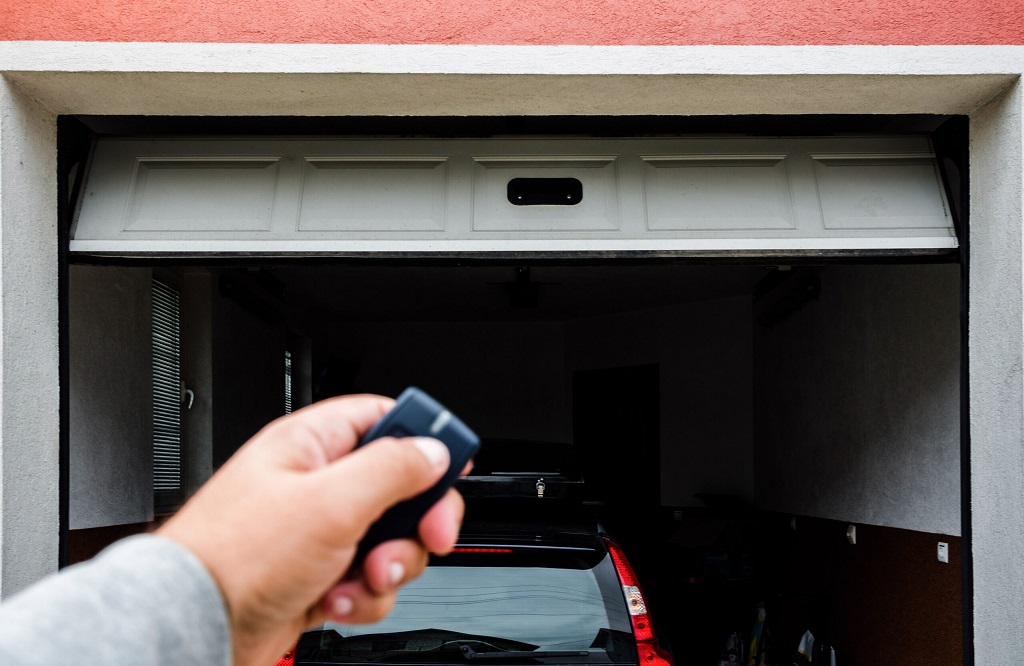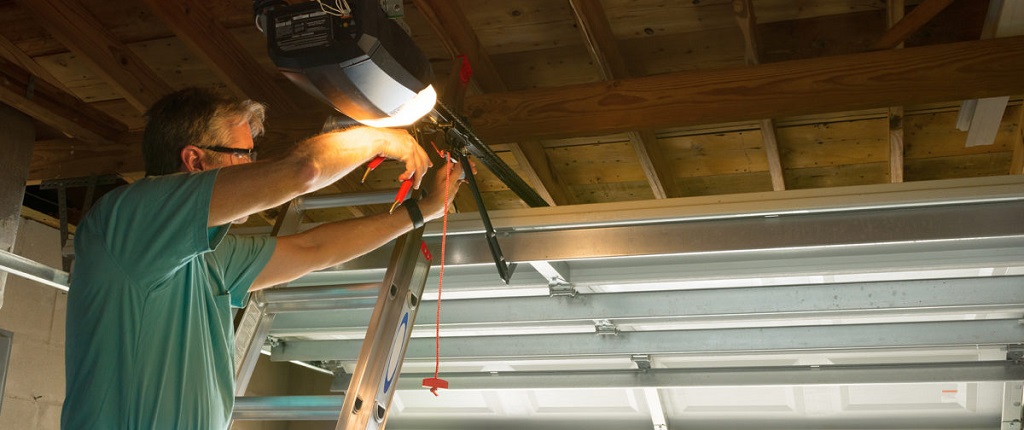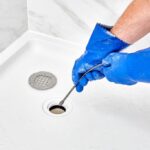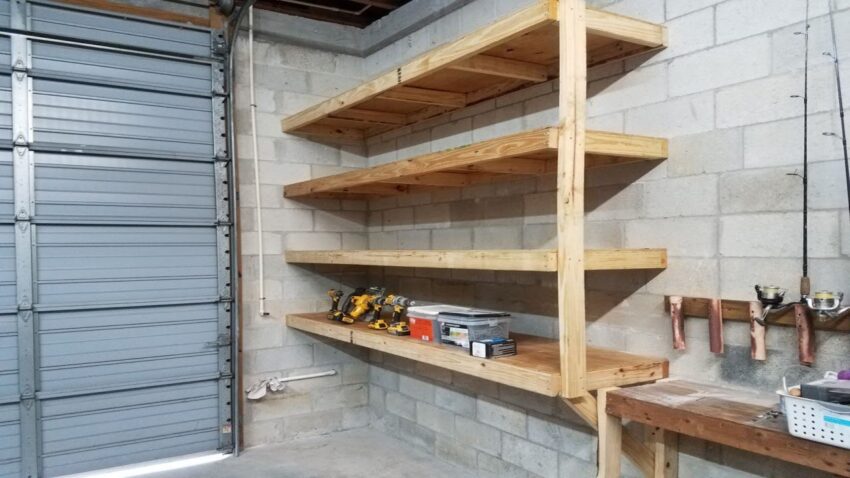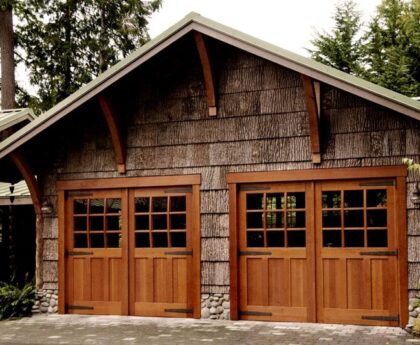The garage door is often an overlooked part of your home’s maintenance routine. Yet, it’s a vital component, safeguarding your car, and belongings, and potentially even serving as an entry point. Just like any hardworking piece of machinery, regular garage door maintenance is crucial for ensuring its smooth operation, safety, and longevity.
This guide explores how often you should maintain your garage door, delving into factors that influence maintenance needs and signs that indicate your door requires attention. We’ll also equip you with essential tips for performing basic maintenance tasks yourself and highlight situations where professional assistance is recommended.
How Often Should You Service Your Garage Door?
There’s no one-size-fits-all answer to garage door maintenance frequency. Several factors influence how often your door needs attention, including:
- Frequency of Use: Heavily used garage doors, opening and closing multiple times a day, naturally experience more wear and tear compared to those used less frequently. If you park multiple cars in the garage or use it for storage and access it often, consider more frequent maintenance – perhaps every six months.
- Environmental Conditions: Exposure to harsh weather elements like extreme heat, cold, or moisture can accelerate wear and tear on your garage door’s components. If you live in a region with extreme weather conditions, yearly maintenance might be beneficial.
- Door Age and Condition: Older garage doors, especially those with noticeable wear or past repairs, may require more frequent maintenance to prevent minor issues from snowballing into larger problems. Newer doors, particularly those with high-quality materials and features, might require less frequent attention.
General Recommendations:
Keeping these factors in mind, here’s a general guideline for garage door maintenance frequency:
- Ideal Scenario: For most homeowners with a moderately used garage door in a temperate climate, a professional inspection and tune-up once a year is recommended. This ensures preventive maintenance, catching potential issues before they become major problems.
- Heavy Use: For heavily used doors or those in extreme environments, consider scheduling professional maintenance every six months.
- Less Frequent Use: If your garage door sees minimal use and is in good condition, a professional inspection every two years might suffice.
Beyond Scheduled Maintenance:
Remember, these are just guidelines. It’s crucial to be attentive to your garage door’s performance and address any concerns promptly.
Signs Your Garage Door Needs Attention:
- Unusual Noises: Screeching, grinding, or other abnormal noises during operation indicate potential problems with the opener, tracks, or rollers.
- Uneven Movement: A door that jerks, hesitates, or moves unevenly could signify issues with the opener, spring tension, or track alignment.
- Slow or Erratic Operation: If the door opens or closes noticeably slower than usual, or if it reverses for no apparent reason, there might be problems with the opener’s motor, sensors, or electrical connections.
- Visible Damage: Cracks, rust, or warping on the door panels, springs, or hardware components are red flags that require immediate attention.
- Safety Sensor Issues: If the auto-reverse feature malfunctions or the photoelectric safety sensors (those near the bottom of the door) appear misaligned or dirty, address them promptly to ensure safety.
Do-It-Yourself (DIY) Maintenance Tasks:
For some homeowners comfortable with basic tools and tasks, there are a few DIY maintenance steps you can perform:
- Visual Inspection: Regularly inspect the door for any visible damage, loose hardware, or debris on the tracks. Tighten any loose bolts or screws with a wrench or screwdriver. Clear any accumulated dirt or debris from the tracks using a damp cloth.
- Lubrication: Lubricate moving parts like rollers, hinges, and the screw drive (if applicable) with a light coat of silicone spray or a product recommended by your garage door manufacturer. Avoid using lubricants on the belt or chain, as they can attract dirt and grime.
- Balance Test: Some garage doors have a manual or automatic balance test feature. Consult your owner’s manual for specific instructions on how to perform a balance test. An unbalanced door can put additional strain on the opener, leading to premature wear and tear.
Important Safety Note: Always refer to your owner’s manual before attempting any DIY maintenance. Never attempt to adjust spring tension or repair major components, as improper adjustments can pose safety risks.
When to Call a Professional:
If you notice any of the warning signs mentioned earlier, encounter difficulties during DIY maintenance, or simply lack the confidence to tackle the job yourself, it’s best to call a qualified garage door technician. Here are some situations where professional assistance is recommended:
- Door Opener Issues: Problems with the opener motor, electrical components, or safety sensors require a professional’s expertise for safe and proper repair.
- Spring Repair or Replacement: Garage door springs are under immense tension and can be dangerous if not handled correctly. Leave spring repairs and replacements to a qualified technician.
- Track Repair or Replacement: Bent, misaligned, or damaged tracks can compromise the door’s operation and safety. Realigning or replacing tracks is a job best left to professionals.
- General Tune-Up: Even if your garage door seems to be functioning properly, a professional tune-up can identify minor issues before they escalate. This can extend the lifespan of your door and prevent costly repairs down the road.
Finding a Reputable Garage Door Technician:
- Seek Recommendations: Ask friends, neighbors, or your local hardware store for recommendations on reputable garage door repair companies.
- Check Online Reviews: Read online reviews and customer testimonials to get a sense of a company’s reputation and service quality.
- Verify Licensing and Insurance: Ensure the technician you choose is licensed and insured to protect yourself in case of any unforeseen accidents during repairs.
- Get Quotes: Don’t hesitate to obtain quotes from several companies before making a decision. This allows you to compare pricing and services offered.
Related: How to Manually Open Garage Door: A Step-by-Step Guide
Conclusion:
Regular maintenance is an investment in the smooth operation, safety, and longevity of your garage door. By understanding how often maintenance is recommended, the factors that influence this frequency, and the signs that indicate your door needs attention, you can ensure your garage door continues to function reliably for years to come. Remember, while some basic tasks can be tackled as DIY projects, for more complex issues or when safety is a concern, don’t hesitate to call a qualified professional. With a little preventative care, your garage door will continue to safeguard your belongings and provide convenient access for a long time.

